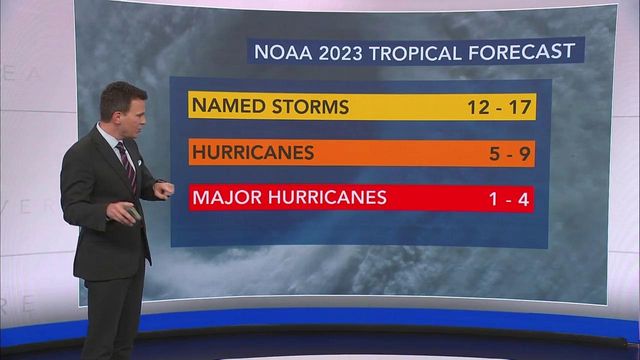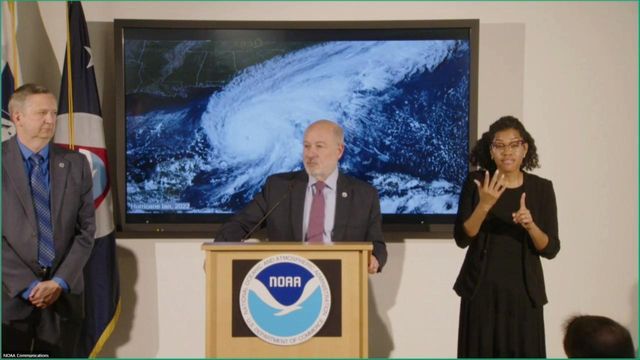NOAA predicts a near-normal 2023 Atlantic hurricane season
El Nino and above-average Atlantic Ocean temperatures are setting the stage for the 2023 Atlantic hurricane season.
NOAA forecasters with the National Weather Service are predicting a 40% chance of near-normal hurricane activity in the Atlantic this year. There's a 30% chance of an above-normal season and a 30% chance of a below-normal season. NC State also predicted a normal hurricane season.
The season stretches from June 1 to November 30.
NOAA forecasts up to 17 named storms
- NOAA is forecasting a range of 12 to 17 total named storms (winds of 39 mph or higher)
- Of those, 5 to 9 could become hurricanes (winds of 74 mph or higher)
- Of those, 1 to 4 could be major hurricanes (category 3, 4 or 5; with winds of 111 mph or higher)
- NOAA has a 70% confidence in these ranges

Upgraded technology for hurricane modeling
“Thanks to the Commerce Department and NOAA’s critical investments this year in scientific and technological advancements in hurricane modeling, NOAA will be able to deliver even more accurate forecasts, helping ensure communities have the information they need to prepare for and respond to the destructive economic and ecological impacts of Atlantic hurricanes,” said Secretary of Commerce Gina M. Raimondo.
Tips for preparing for the 2023 Atlantic hurricane season
- Know what your risk is: Hurricanes are more than just the cone that we see. Risks also include storm surge, significant rainfall, flooding and carbon monoxide poisoning afterwards.
- Know how you will get information: Consider resources like the FEMA app, NOA weather apps, the WRAL Weather app and emergency alerts.
- Make an emergency plan: Do you know which evacuation zone you're in? Where you'll go if asked to evacuate? Also, review all important documents. Have them prepared to travel with you if you need to evacuate quickly.












